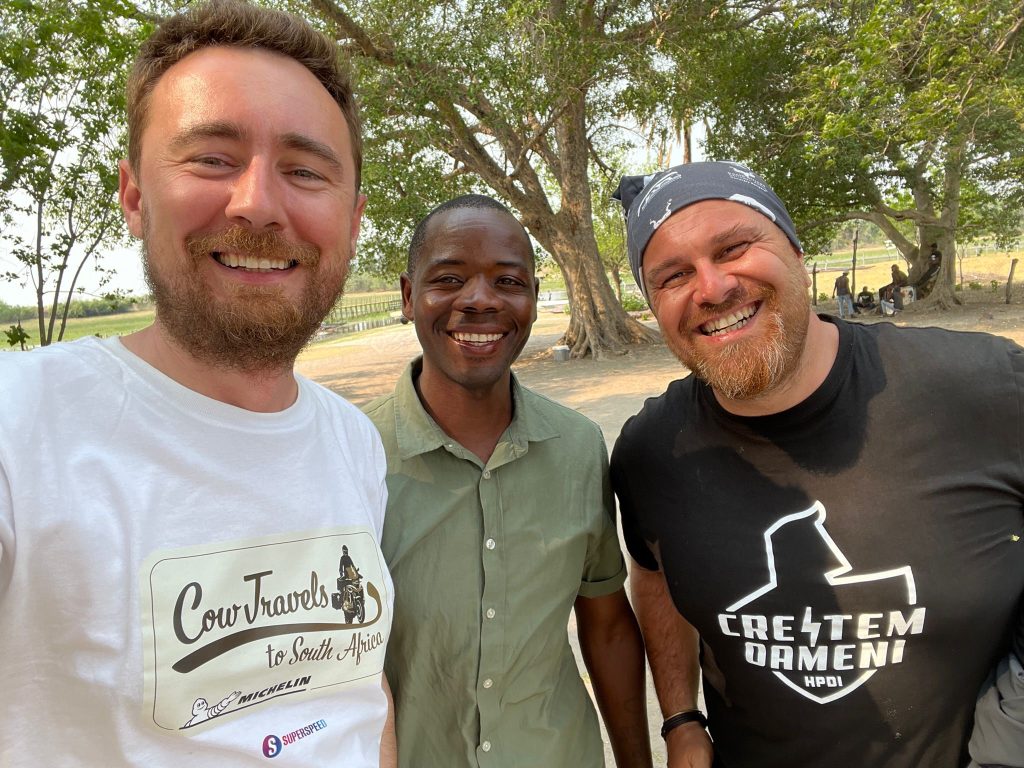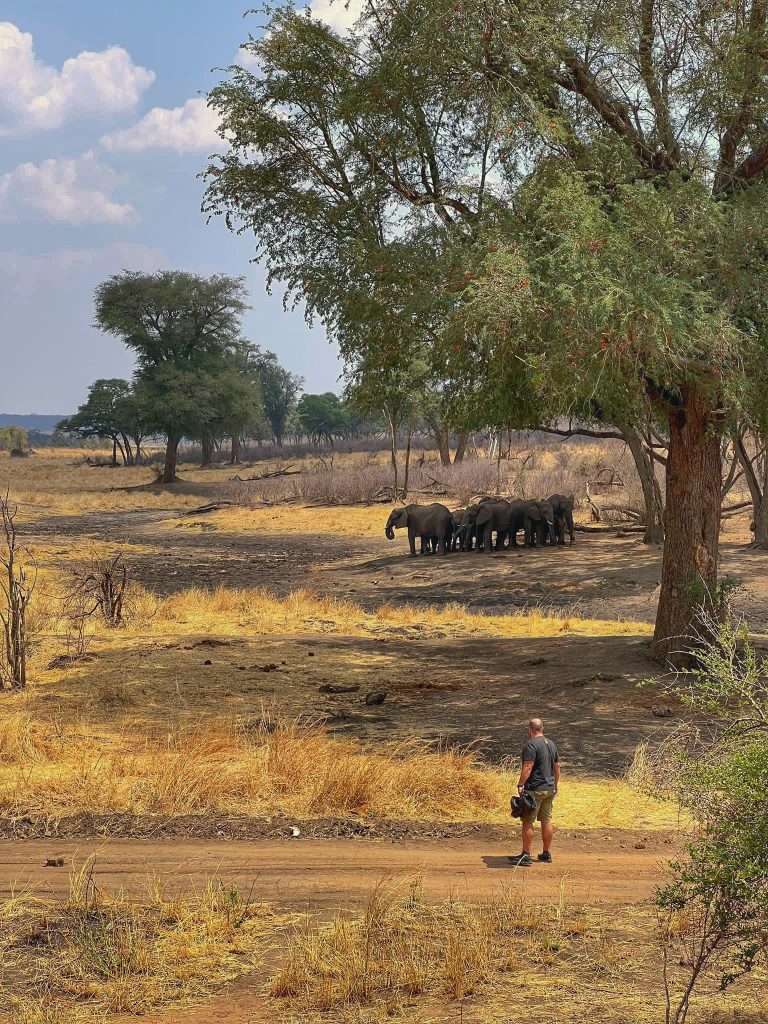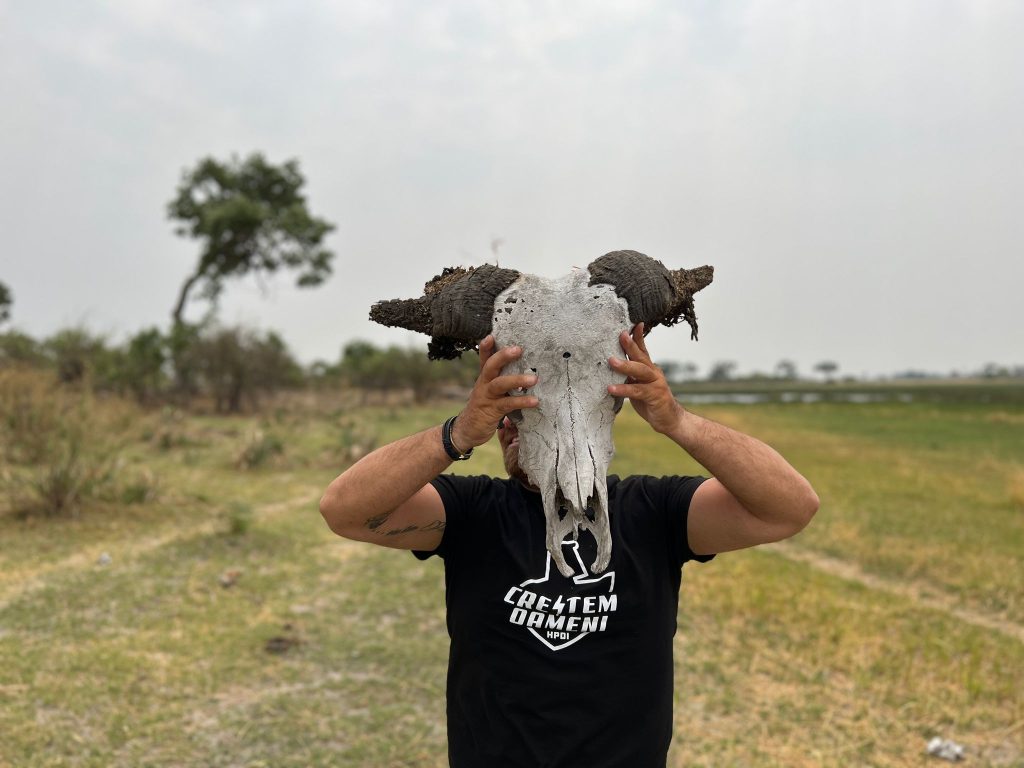I recently returned after the longest period of wandering I ever dreamed I would have, 1 month and a day spent in 5 countries across Africa, crossed by motorbike. It took me many years to understand the impact Jules Verne had on me as a child, and only late in adulthood I learned that I was so happy to live his books, in my adventures. This is how the crossing of South Africa, from South to North (in several stages), was born, along with a good friend, on motorcycles, departing from Cape Town (South Africa), through Namibia, Botswana, Zimbabwe and a little of Zambia, with a finish in Victoria Falls.
Thus, this article is about summarizing in a few words, thoughts and emotions, everything that 7500 km of desert, tribes and animals meant to me, but above all, a month spent with me more than ever in my life before. And it’s a huge challenge to articulate what I feel 2 weeks after crossing the Zambezi River with a dinghy, but here I am trying.

I liked the people the most.
An incredible mix of unrealistic preconceptions and expectations has led me to associate Africa with poverty, grief, pain, and injustice. An burdensome injustice, a gray mood without a smile. This is how I have always seen shortcomings, along with this dark gray, which blinded me more than the shortcoming itself.
In Africa it is different, because people are modest without being upset, without being frowned upon. What’s more, there’s a dancing mood in all the communities I’ve been in, a celebration of life per se, more than a shortcoming of the latest iPhone model you’re missing. Somehow, people choose to be satisfied with what they have rather than be dissatisfied with what they don’t have. Because basically, we have this life, we have a little luck tomorrow and a new beginning for whatever we set to do. And I know that optimism is a bias from Pandora’s box where hope is the only one that didn’t run away, but these people taught me that we all have an end , we will all be disappointed several times in life and even so, they chose to use their present, more than the future. That’s how I re-learned that modesty is not just sadness and anger, but the less you have, the less you will lose, so let’s enjoy what really matters, life.

Nature is not ours to tame it.
It is a given our fight to domesticate nature, to fence forests, pastures, to dispose the animals behind a high mesh fence. Basically, our image of nature is that of a food supplier, for which we need to work by domesticating both goat and potato. So that the tree that grows crooked and we don’t like it, we cut it off, when we want to see nature we go to the park, where among the new alleys, we see the trees, whitewashed to half and cleaned to have the shape that pleases our eye. We have succeeded, we are the sovereigns of this world.
But I saw another perspective in the countries I visited, where this struggle of man vs nature was not so present and obvious. The boundaries of civilization and wilderness were not terribly well defined, so the cities were full of wild animals that usually came to drink more water, eat something, or even see what was new. At night, there were signs that suggested that it was not necessarily a good idea to walk through certain areas, where curious panthers came to see what guests came to visit the city. And as wild as it may sound, the sense of nature’s power over urban life was as normal as it is for us to hear the neighbor’s drill singing on the walls while Sunday is just starting. And the acceptance of this power created the feeling that we finally got somewhere where people are one with nature, which is incredibly normal.

Death is so normal, almost as normal as life itself.
One of our guides in the Okawanga Delta, while pushing us with a stick into a dinghy called mokoro, told us about how several villagers happened to be eaten by the hippopotamus that was starring at us from 7 meters away.
And also KB, our guide, tells us that if it were to come after us, he would know what to do to attract the hippo to him, so that we could get out of it alive. And call it a lot of tips, but the safety and tranquility with which he said this, calmed us in that moment more than we could have imagined. Not infrequently, discussions with the people of Botswana, Zimbabwe, or the tribes we have walked through have reached the point where they told us how some of their closest ones are no longer among us. And if these discussions usually make you not know how to look and say something that honors the pain your interlocutor is going through, this was not the case. People talk about death as they talk about food, or dance, or family.
I did not feel that death has a special status, and if I initially judged it as a lack of discernment, I realized that in fact they value life so much, but do not mix grief and sadness with everyday life. And that this living in the present that we learn about through meditation, personal development training, anti-anxiety drugs, or staying away from us so we don’t face our demons, is just a way of fooling ourselves and postponing something inevitable, imminent but absolutely normal, the fear of death and, implicitly, creating a curtain of comfort. And just as we have to dance as if no one is looking at us, we could live as if the end is there, start thinking about it, not when we actually get there. Life is now, so enjoy it!
It is far from synthesizing everything I have lived in a month in these paragraphs, but I promise that if we receive a reply from you to this article, I will continue this epic in a notebook with lessons I brought with me, in my suitcase and in my heart.








Leave a Response